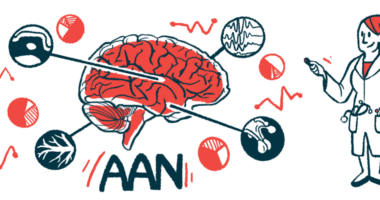Prilenia to seek European approval of pridopidine for Huntington’s
If approved, therapy could become available to patients as early as 2025

Prilenia Therapeutics plans to submit a marketing authorization application (MAA) by mid-year asking for approval in the European Union of pridopidine, an oral small molecule for treating Huntington’s disease.
The planned filing with the Committee for Medicinal Products for Human Use, part of the European Medicines Agency (EMA), follows positive discussions at pre-submission meetings, held to provide an opportunity for advice and guidance from EU regulators, the company said in a press release.
Those meetings were scheduled after the experimental therapy last year failed to meet its main goal in a Phase 3 trial.
“We appreciate the constructive discussions with European regulators regarding our data for pridopidine,” said Michael R. Hayden, PhD, Prilenia’s CEO. “We are now finalizing our MAA submission for mid-2024 and preparing to make pridopidine commercially available for patients in Europe, if approved.”
If granted approval, the therapy could become available to EU patients as early as 2025, the company noted in the release.
Prilenia also plans to enter into discussions with the U.S. Food and Drug Administration to chart a course for pridopidine’s potential approval in the U.S. The company also will consider filing for approval in other countries following the EMA’s review.
Developer held meetings with regulators after pridopidine failed Phase 3 trial
In Huntington’s, mutations in the gene coding for the huntingtin protein result in an abnormally long version of that protein that is prone to form toxic clumps, or aggregates. Accumulation of these toxic aggregates drives nerve cell damage and death, resulting in Huntington’s symptoms — key among them chorea, or involuntary muscle contractions, and cognitive decline.
Pridopidine is an oral treatment designed to act as an agonist of the sigma-1 receptor (S1R), which means that it binds to and activates that protein. S1R is present in great amounts in the brain and spinal cord, where it’s thought to help clear out toxic proteins, among other key roles for maintaining nerve cell health.
As such, pridopidine is expected to prevent the death of nerve cells and improve the connections between one nerve cell and another. Such connections are commonly impaired in Huntington’s and other neurodegenerative diseases. It’s thought that improving them may help to slow disease progression and ease symptoms.
In a Phase 2 clinical study called PRIDE-HD (NCT02006472), treatment with 45 mg of pridopidine twice daily outperformed a placebo at slowing functional decline. That study, completed in 2016, had enrolled 408 Huntington’s patients, ages 21 and older.
The subsequent Phase 3 trial (NCT04556656), dubbed PROOF-HD, failed to confirm that pridopidine could slow functional decline, however. While trends toward benefits in a range of measures were seen, the therapy did not meet its efficacy goals relative to a placebo in the 499 participants involved.
Prilenia noted that the trial’s preliminary top-line data indicated a potential for slowing disease progression among those not on other Huntington’s treatments, allowing patients to manage their symptoms, with benefits seen in both motor and cognitive measures.
Pridopidine demonstrates consistent treatment benefits across independent measures that are important to patients and families. These measures include day-to-day function, cognition, motor and clinical progression in people living with [Huntington’s disease].
Hayden noted that there are “no currently approved treatments that address progression” in Huntington’s.
“Pridopidine demonstrates consistent treatment benefits across independent measures that are important to patients and families. These measures include day-to-day function, cognition, motor and clinical progression in people living with [Huntington’s disease],” Hayden said.
“The benefits are clearly evident in those with [Huntington’s disease] who are not taking anti-dopaminergic medications,” Hayden added.
Such medications, which block the action of dopamine, a chemical involved in movement control, include antipsychotics and VMAT2 inhibitors used to treat chorea. Among these chorea treatments are Austedo (deutetrabenazine) and Ingrezza (valbenazine).
Pridopidine also is being tested as a potential treatment for amyotrophic lateral sclerosis (ALS), another neurodegenerative disease, with a pivotal Phase 3 trial being planned and expected to launch later this year.
The therapy received orphan drug designation for the treatment of Huntington’s and ALS in the U.S. and the EU, and fast track designation for treating the disease in the U.S. These statuses are meant to accelerate a therapy’s clinical development and regulatory review.







